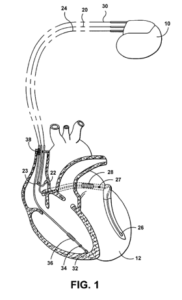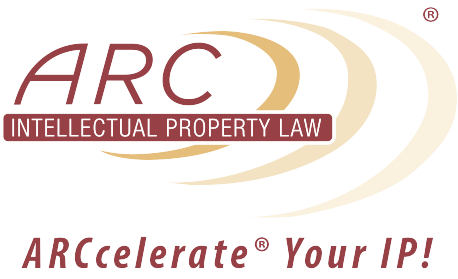
Understand Patents, Copyrights, and Trademarks
There are several challenges to overcome when trying to protect your intellectual property. The first challenge is determining whether what you created is actually intellectual property. The second challenge is determining what type of intellectual property you have. And the final challenge is how to go about gaining protection for your intellectual property (this will not be discussed in this article).
The first challenge is the easiest one to overcome. The World Intellectual Property Organization states that “Intellectual property (IP) refers to creations of the mind, such as inventions; literary and artistic works; designs; and symbols, names and images used in commerce.”1 If your idea falls into one of these broad categories, then you have intellectual property you can earn recognition and/or a financial benefit from and that you should protect.
The second challenge is a bit more demanding and requires not only a knowledge of the intellectual property needing protection, but also an understanding of the three areas of intellectual property recognized worldwide. The three areas of intellectual property are: patents, trademarks, and copyrights.2
Patents
 A patent is a property right granted by the government to an inventor to exclude others from making, using, offering for sale, or selling the invention throughout the country or importing the invention into the country for a limited time in exchange for public disclosure of the invention when the patent is granted.3 The four categories of patentable subject matter are machines, manufactured articles, industrial processes, and compositions of matter.4 Some examples of patentable subject matter may include: mechanical devices, ceramics, clothing articles, or chemical mixtures resulting in a solid, liquid, or gas.
A patent is a property right granted by the government to an inventor to exclude others from making, using, offering for sale, or selling the invention throughout the country or importing the invention into the country for a limited time in exchange for public disclosure of the invention when the patent is granted.3 The four categories of patentable subject matter are machines, manufactured articles, industrial processes, and compositions of matter.4 Some examples of patentable subject matter may include: mechanical devices, ceramics, clothing articles, or chemical mixtures resulting in a solid, liquid, or gas.
The duration of the patent’s protection depends on the type of patent granted.5 There are two types of patents: design patents and utility patents. A design patent protects the ornamental characteristics or visual characteristics of an article of manufacture and protects the invention for 14 years from the date of filing the application.6 A utility patent protects the functionality of an article of manufacture and protects the invention for 20 years from the date of filing the nonprovisional application.7
Trademarks
 A trademark is a word, name, symbol, sound, design, or color that distinguish goods of one party from the goods of another.8 A service mark is a word, name, symbol, sound, design, or color that distinguishes the services of one party from the services of another.9 The term “trademark” is generally used to refer to both trademarks and services marks.10 In short, trademarks are your brand. They can include the name of your company, your catch phrase, your logo, etc. Trademarks, unlike patents and copyrights, can last forever so long as they are in actual use and the registration is renewed at the appropriate times, specific documents are filed, and the fees are paid.11
A trademark is a word, name, symbol, sound, design, or color that distinguish goods of one party from the goods of another.8 A service mark is a word, name, symbol, sound, design, or color that distinguishes the services of one party from the services of another.9 The term “trademark” is generally used to refer to both trademarks and services marks.10 In short, trademarks are your brand. They can include the name of your company, your catch phrase, your logo, etc. Trademarks, unlike patents and copyrights, can last forever so long as they are in actual use and the registration is renewed at the appropriate times, specific documents are filed, and the fees are paid.11
Copyrights
 A copyright protects original works of authorship, such as writings, music, software code, and works of art that have been tangibly expressed.12 Copyright covers both published and unpublished works and protects the way things are expressed, but not facts, ideas, systems, or methods of operation.13 Unlike a patent or a trademark, you do not have to register a copyright for you to be protected. Copyright exists from the moment the work is created.14 However, in order to sue for copyright infringement the work must be registered.15 So if a work is automatically protected by copyright, why would an author register the work prior to someone infringing on it? Because a registered work may be eligible for additional statutory damages and attorney fees. Also, a work registered within 5 years of publication is considered prima facie evidence of authorship in litigation.16 In general, The Library of Congress registers copyrights which last for the life of the author plus 70 years.17 Copyrights did not always have such a long lifetime, originally copyright right protection only lasted 14 years, but over the years Congress has extended the copyright term and it seems like Mikey is to blame. 18 Every time Disney’s copyright on its Mikey Mouse character is about to expire Congress extends the copyright term. Coincidence? Unlikely, so given that Mikey Mouse is set to expire in 2023 it is possible we may see an extension of the duration of a copyright in the next few years.
A copyright protects original works of authorship, such as writings, music, software code, and works of art that have been tangibly expressed.12 Copyright covers both published and unpublished works and protects the way things are expressed, but not facts, ideas, systems, or methods of operation.13 Unlike a patent or a trademark, you do not have to register a copyright for you to be protected. Copyright exists from the moment the work is created.14 However, in order to sue for copyright infringement the work must be registered.15 So if a work is automatically protected by copyright, why would an author register the work prior to someone infringing on it? Because a registered work may be eligible for additional statutory damages and attorney fees. Also, a work registered within 5 years of publication is considered prima facie evidence of authorship in litigation.16 In general, The Library of Congress registers copyrights which last for the life of the author plus 70 years.17 Copyrights did not always have such a long lifetime, originally copyright right protection only lasted 14 years, but over the years Congress has extended the copyright term and it seems like Mikey is to blame. 18 Every time Disney’s copyright on its Mikey Mouse character is about to expire Congress extends the copyright term. Coincidence? Unlikely, so given that Mikey Mouse is set to expire in 2023 it is possible we may see an extension of the duration of a copyright in the next few years.
ARC IP Law can help you identify what intellectual property you have and how to protect it.
Danna Cotman is the founder of ARC IP Law and has handled a wide variety of intellectual property matters, including patent, trademark, and copyright litigation, and prosecuted applications before the United States Patent and Trademark Office.

